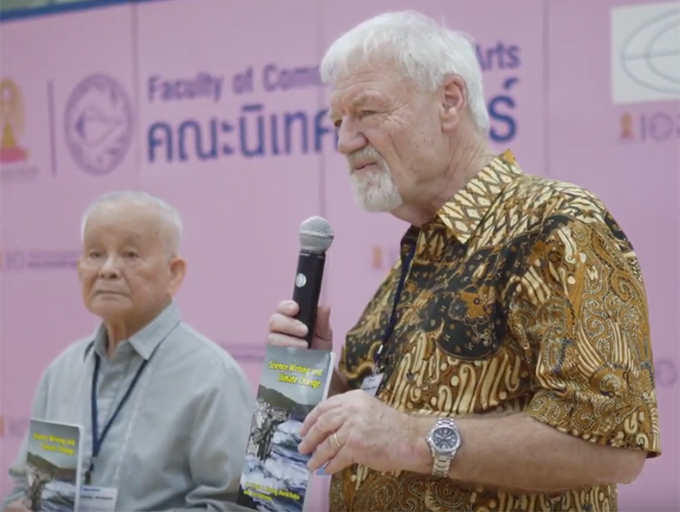The AMIC 2009 conference highlights. Video: AMIC
Pacific Media Centre Newsdesk
A new video has been produced on YouTube featuring highlights of this month’s 27th AMIC media and communication conference in Bangkok, Thailand, with the theme “Are You Human? Communication, Technology, and New Humanism”.
In the world we live today, what makes us human—or less human? asked the Asia Media Information and Communication Centre (AMIC) conference organisers. They said:
“We now live in a technological civilisation dominated by media culture.
READ MORE: Bring ethics into global smart tech, warns UN cyber expert
“Two observations by Jordi Torrent (2014) of the UN Alliance of Civilisations capture the essence of this characterisation:
“We have evolved from a society where the framework was ‘I think therefore I am’ to one where the basis of self-identity is ‘I communicate therefore I exist’. The terrain of this identity formation is the internet, in particular, the social media platforms.
“If we may rephrase Torrent’s observation, we would say, ‘I click therefore I exist’ or ‘I swipe therefore I exist’.
“Torrent (2014) also observed that the internet is ‘rapidly becoming the framework of our life (private and public)’, that there are parts of the world where mobile internet access is ‘easier than access to clean water or sanitation facilities’, and that in industrialised societies, children practise active social media engagement.
“Another recent term used to describe today’s new world is the Fourth Industrial Revolution (4IR).
“Klaus Schwab, founder and executive chairman of the World Economic Forum and a lead proponent of the concept, describes 4IR as characterised by a fusion of technologies that is blurring the lines between the physical, digital, and biological spheres.
“According to Schwab, 4IR is evolving at an exponential pace and that the breadth and depth of the changes it brings lead to the transformation of entire systems of production, management, and governance.”
This video highlights some of the key themes at the three-day conference on June 17-19 attended by more than 200 people across the Asia-Pacific region.
It has been produced by the AMIC Consortium with sponsorship from Routledge Publishers and UNESCO.
- 27th AMIC conference
- Conference report
- AMIC website











































